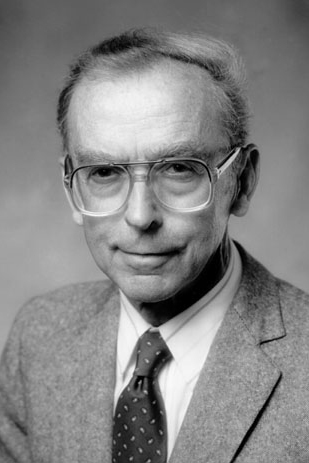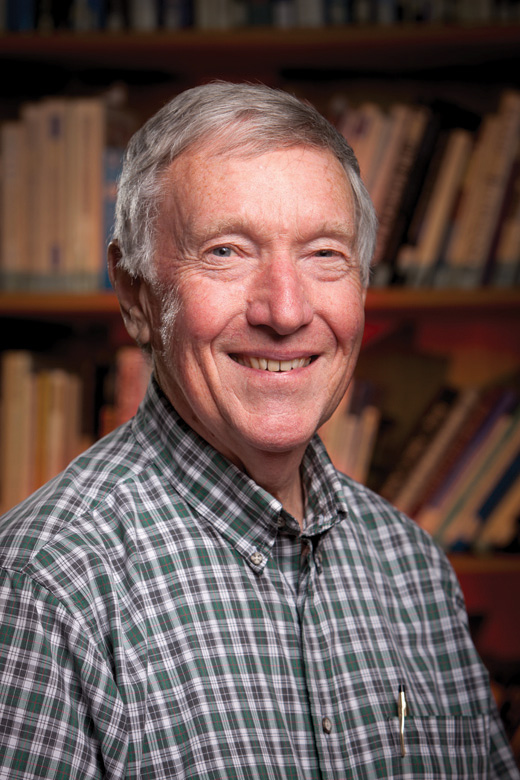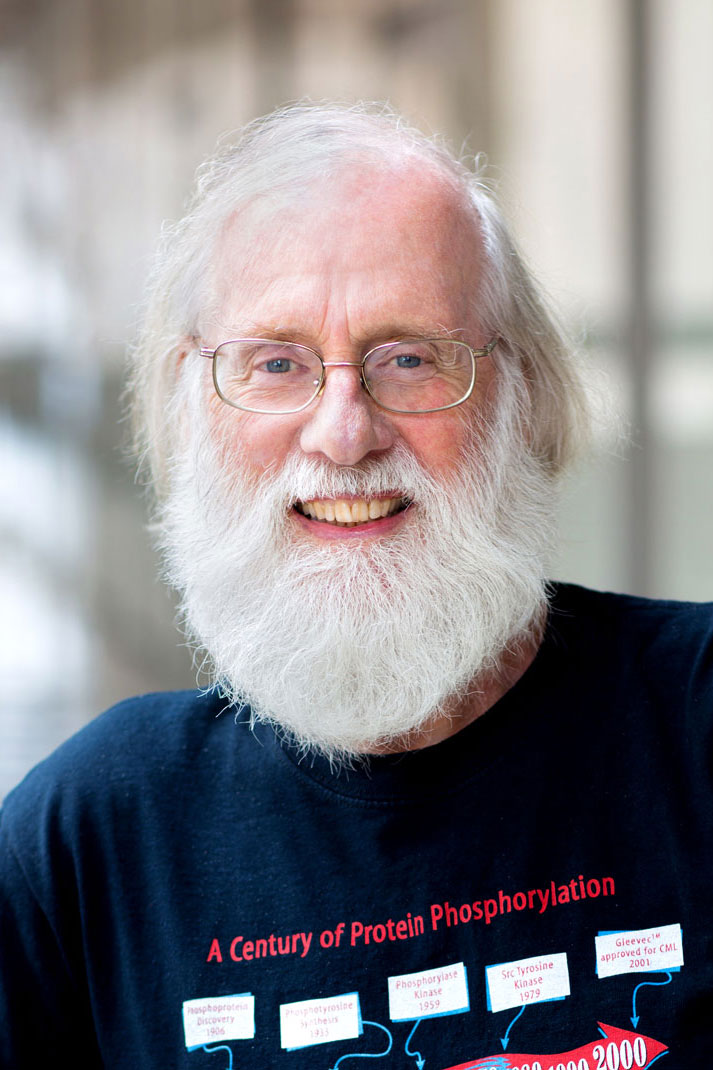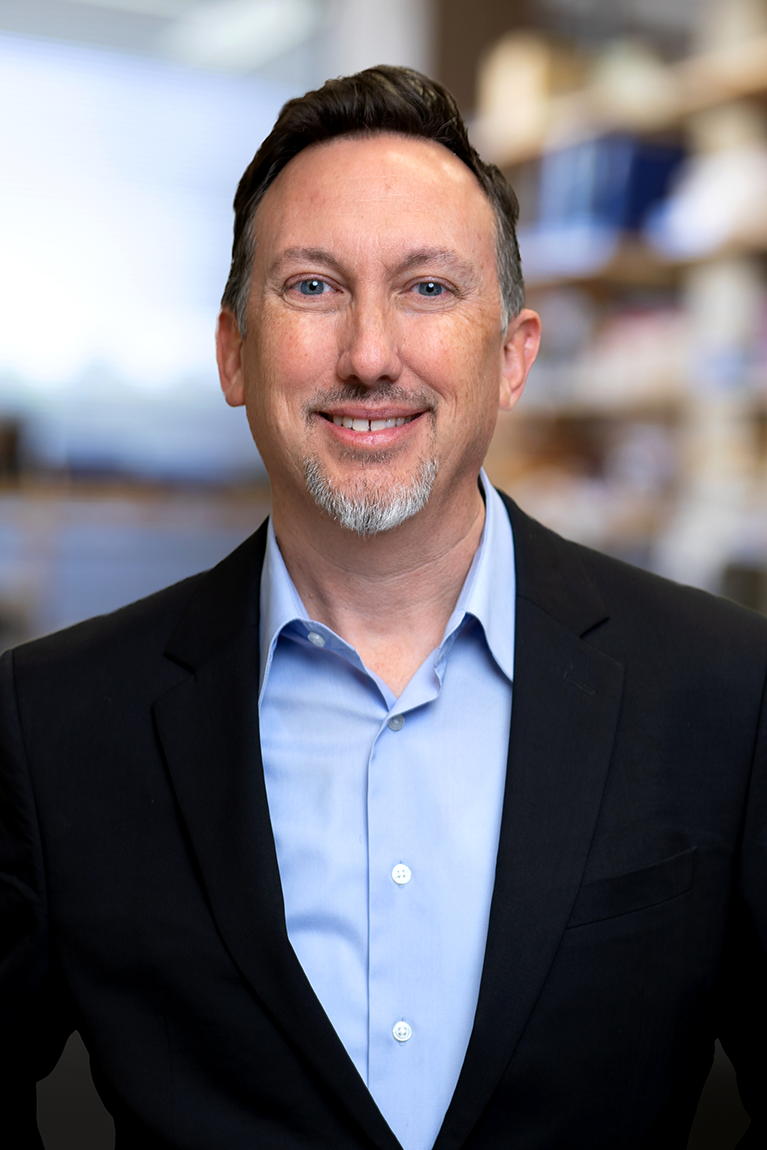History
The Cancer Center at the Salk Institute was established in 1970 under the leadership of Robert W. Holley. Holley, alongside H. Gobind Khorana and Marshall W. Nirenberg, who pioneered the interpretation of the genetic code and its function in protein synthesis—for which the trio received a Nobel Prize in Physiology and Medicine in 1968.
In 1973, the Cancer Center became one of the first National Cancer Institute (NCI)-designated basic research cancer centers in the United States. This designation recognizes the Institute’s rigor across its laboratory research, scientific discoveries, and therapeutic developments. Today, the Cancer Center is led by Salk Professor Reuben Shaw.
Past and Present Salk Cancer Center Directors

1973-1975

1975-2008

2008-2016

2016-Present
The Salk Institute has a long history of scientific breakthroughs, beginning with its founder Jonas Salk, who developed the first polio vaccine. A Founding Fellow at Salk, Renato Dulbecco (1914-2012) won the Nobel Prize in Physiology and Medicine in 1975 for discovering how tumor viruses promote cancer via genetic changes. His work set the stage for much of the cancer research being done today at Salk. Another Founding Fellow, Leslie Orgel (1927-2007), studied nucleotides, the building blocks of nucleic acids like RNA and DNA. He developed a way to make a chemical called cytarabine (Ara-C) that is used as chemotherapy drug for several types of leukemia.
The Cancer Center continued to see a meteoric rise in its prominence in cancer research under the leadership of Walter Eckhart (1975-2008), who took the reins as director in 1975—a role he would hold for three decades. Eckhart’s studies of tumor virus genes that stimulate cellular growth signaling pathways, allowing the cells to divide continuously, led to the development of drugs that inhibit the growth of cancer cells.
During Eckhart’s tenure, he recruited future Salk professor and Cancer Center director Tony Hunter. Hunter would go on to discover a process called tyrosine phosphorylation that goes awry in many human cancers. This discovery revolutionized cancer medicine and led to the development of several innovative cancer therapies including Gleevec, Iressa, and Tarceva. Gleevec is included on the World Health Organization’s Model List of Essential Medicines and transformed several types of leukemia from fatal cancers into manageable chronic conditions. Currently, 39 tyrosine kinase inhibitors are FDA-approved for cancer therapy, with many more currently in clinical trials.
Today, under Reuben Shaw’s leadership, the Cancer Center is primarily focused on two distinct programs, which include: 1) Genome Stability, Epigenetics, and Aging in Cancer; and 2) Tumor Immunology, Metabolism, and Therapeutics. The Cancer Center’s research continues to break down the boundaries that have traditionally limited the scope and efficacy of cancer medicine. Salk is well positioned at the forefront of cancer breakthroughs.
Other Salk Cancer Center scientific breakthroughs in the past decade include:
- Ronald Evans’ discovery that a synthetic form of vitamin D can create vulnerabilities in pancreatic cancer, improving the effectiveness of chemotherapy. This strategy is currently being tested in four clinical trials.
- Reuben Shaw’s discovery of an energy-sensing “starvation” pathway that links metabolism to cancer and shuts down cell growth when nutrients are scarce. Shaw’s work led to testing of Metformin, a type 2 diabetes drug, and Metformin analogs in clinical trials for various cancers.
- Clodagh O’Shea’s development of cutting-edge synthetic oncolytic adenoviruses to target different features of tumors.
- Susan Kaech’s discovery, while investigating models of melanoma and lung cancer, that stimulating the CD40 receptor on immune T cells can suppress tumor growth.
- Jan Karlseder’s discovery of how the dysfunction of telomeres sensitizes tumor cells to combinations of Taxol derivatives and PARP inhibitors.
- Tony Hunter’s discovery of a new form of protein modification called histidine phosphorylation. This is often altered in cancer and may present an effective target for treating certain forms of the disease.
In addition to research, the Cancer Center maintains active graduate and postdoctoral education and training programs. In conjunction with UC San Diego’s School of Biological Sciences, Salk conducts a joint graduate program for highly talented individuals to partake in collaborative, interdisciplinary training that develops practical skills and experience. This program not only broadens career opportunities but helps conduct transformative scientific work.
